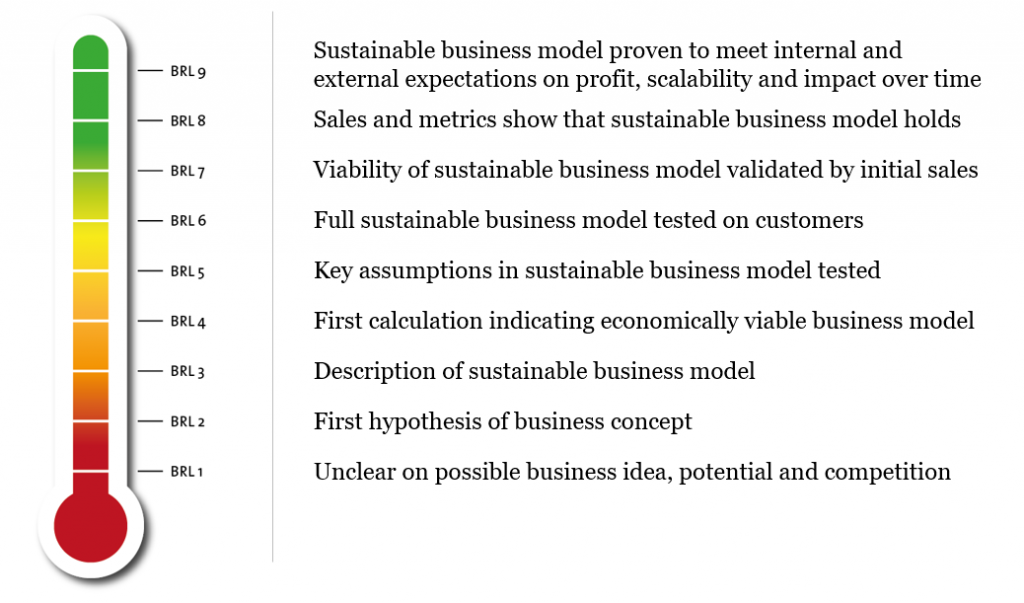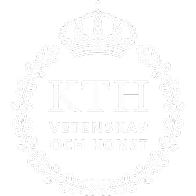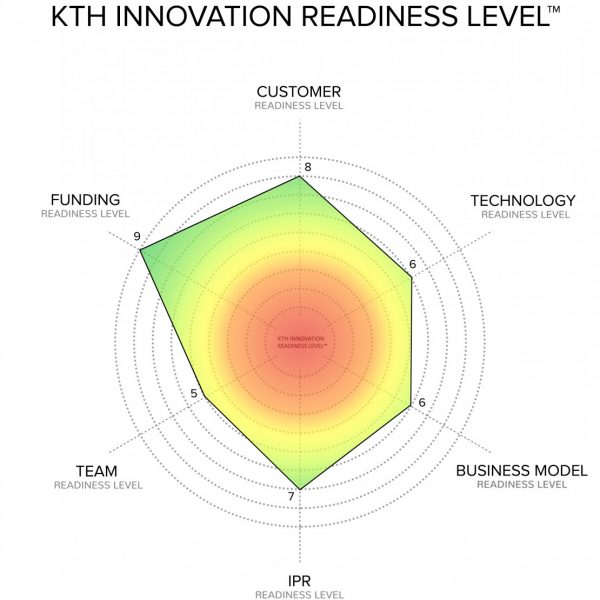The KTH Innovation Readiness Level™ is now available to use under license. Explore the model, its components and practical application in this concise tour.

The Components
Each individual Readiness Level comes with a number of resources and visual aides. A nine grade scale is used to map the current status of the idea to the overall development phase. This scale is visualised using a thermometer style tool with a number of milestones to reach before the next level is achieved.

Value & Benefits
With the KTH Innovation Readiness Level™ you will:
Structure - your innovation development process
Visualize and measure - the status and progress of ideas
Guide - the process and do the right thing at the right time
Communicate - more effectively with all stakeholders
Manage - your portfolio of ideas in different stages more effectively
The KTH Innovation Readiness Level™ Model
While the model is especially focused on the early stages and technology based ideas, it is generic and applies to many types of ideas independent of technology field or business concept. The model has been used in a wide range of cases at KTH with great results supporting idea owners as well as coaches and advisors through the early stages of developing and verifying innovative ideas.
The model covers six key areas of innovation development that are highly relevant in most cases. It enables a more objective assessment of the development stage and readiness of the idea within these different areas.
Within each of the six areas, a detailed readiness level scale is described with clear definitions of criteria, milestones, and activities for each level. This helps focusing the work on doing the right things at the right time to effectively advance the idea development.
The model is supplied via the access to an online tool containing all descriptions and documents. In a planned premium version, you will also get access to an online software application that will make it even easier to work effectively with the model.
The Components
There are six Innovation Readiness Levels:
Customer Readiness Level – CRL – confirm customer need and interest
Technology Readiness Level – TRL – develop and test the technology, product, service, or concept
Business Model Readiness Level – BRL – establish that the concept can be financially, environmentally, and socially viable and feasible
IPR Readiness Level – IPRL – clarify the legal and IP situation and secure relevant IP protection
Team Readiness Level – TMRL – secure the right competencies and align the team
Funding Readiness Level – FRL – secure the necessary funding to take the idea to the marketM

Definition of levels

For each Readiness Level, there are nine pre-defined levels where a number of criteria need to be met to reach each level
On the left is an example of one criteria for each level, in reality there are often more than one and you need to reach all milestones on each level to advance to the next.
Innovation Process Integration
The KTH Innovation Readiness Level™ is an excellent tool to integrate in a structured innovation process. Using these resources in conjunction with each other offers coaches and advisors a way to seamlessly tie the development of an idea to the phases of the innovation process.
Each phase in the process can be mapped to the criteria for the readiness levels so that both coach and idea owner has a clear and common understanding of the next steps in developing the idea towards the market.

Value & Benefits
The KTH Innovation Readiness Level™ is a tool with many applications that adds value for several users and stakeholders (idea owners, coaches, managers, external partners). For example:
Snapshot of status and maturity – use the tool to quickly and without bias assess the maturity and current development status of an idea
Reality check – the tool enables idea owners to more objectively define their progress across several important dimensions
Coaching and communication – offering clear and defined terminology and a visual model allows coaches, advisors, and idea owners to communicate effectively around the idea development. It also provides a structure for individual meetings as well as the entire process
Guidance – the model provides key steps and questions that need to be addressed and gives a clear roadmap for both coaches and idea owners throughout the process
Portfolio management – the possibility to quantify and visualise the development progress of the ideas in your entire portfolio can generate useful metrics that helps your organisation to objectively and fairly allocate resources and in other ways control and guide your innovation support process
The model is built to align with and include the current best practices and well known methodologies in innovation development such as the lean startup methodology, the business model/lean canvas, etc.

